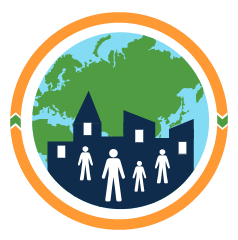An urban systems framework to assess the trans-boundary food-energy-water nexus: Implementation in Delhi, India
Type
This paper develops a generalizable systems framework to analyze the food-energy-water (FEW) nexus from an urban systems perspective, connecting in- and trans-boundary interactions, quantifying multiple environmental impacts of community-wide FEW provisioning to cities, and visualizing FEW supply-chain risks posed to cities by the environment. Delhi's community-wide food demand includes household consumption by socio-economic-strata, visitors- and industrial food-use. This demand depends 90%, 76%, and 86% on trans-boundary supply of FEW, respectively. Supply chain data reveal unique features of trans-boundary FEW production regions (e.g. irrigation-electricity needs and GHG intensities of power-plants), yielding supply chain-informed coupled energy-water-GHG footprints of FEW provisioning to Delhi. Agri-food supply contributes to both GHG (19%) and water-footprints (72%–82%) of Delhi's FEW provisioning, with milk, rice and wheat dominating these footprints. Analysis of FEW interactions within Delhi found >75% in-boundary water-use for food is for urban agriculture and >76% in-boundary energy-use for food is from cooking fuels. Food waste-to-energy and energy-intensity of commercial and industrial food preparation are key data gaps. Visualizing supply chains shows >75% of water embodied in Delhi's FEW supply is extracted from locations over-drafting ground water. These baseline data enable evaluation of future urban FEW scenarios, comparing impacts of demand shifts, production shifts, and emerging technologies and policies, within and outside of cities.

